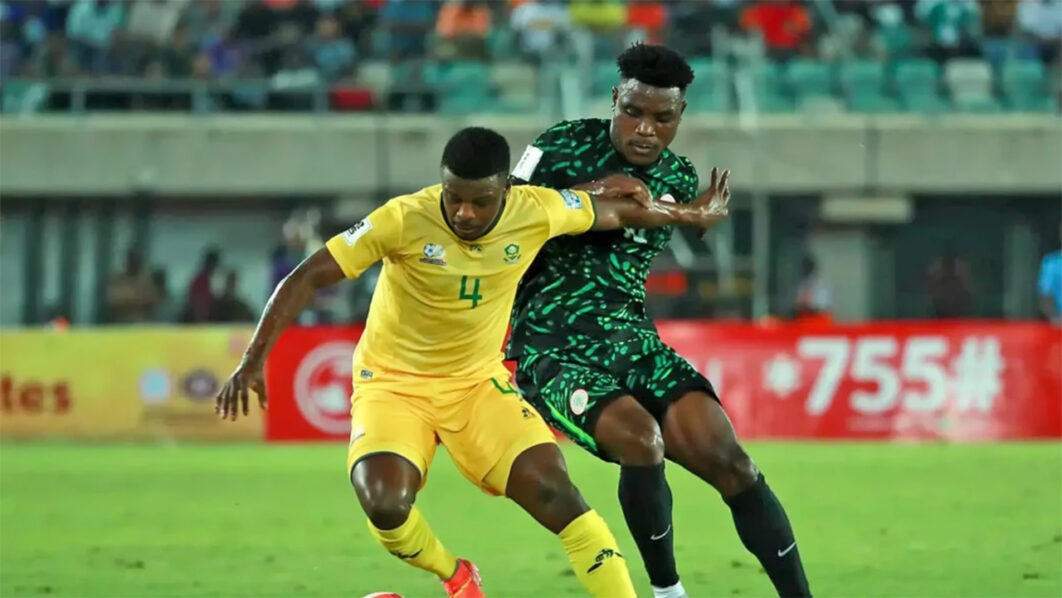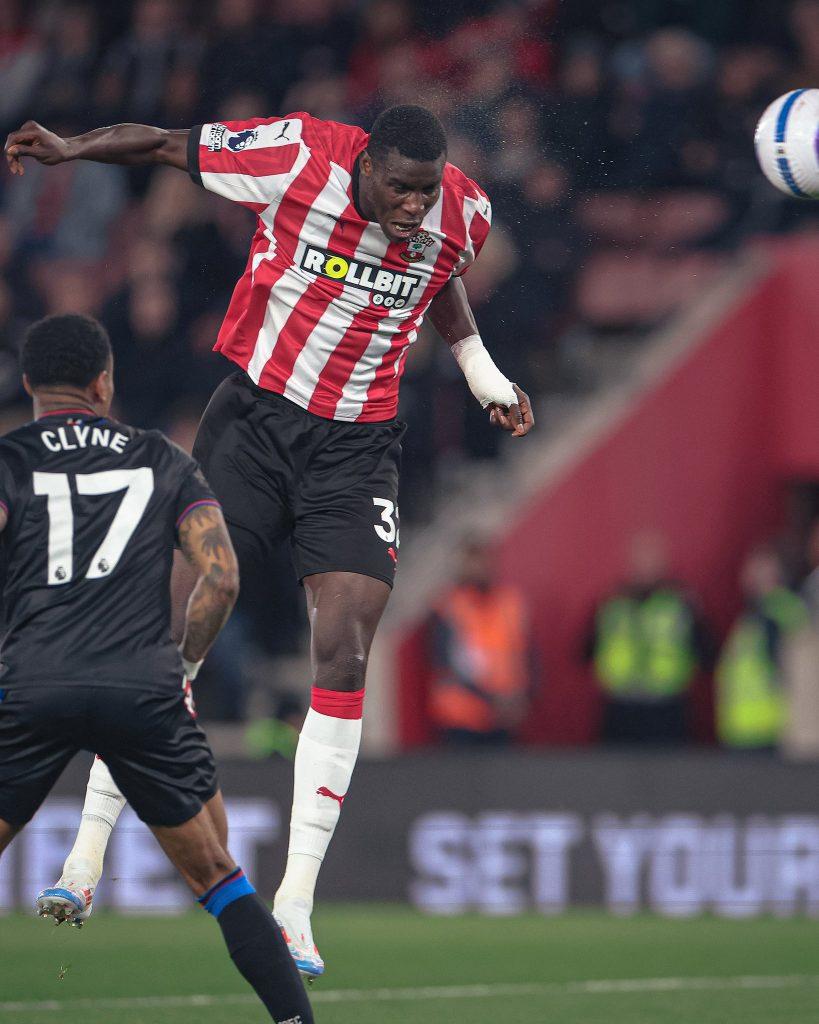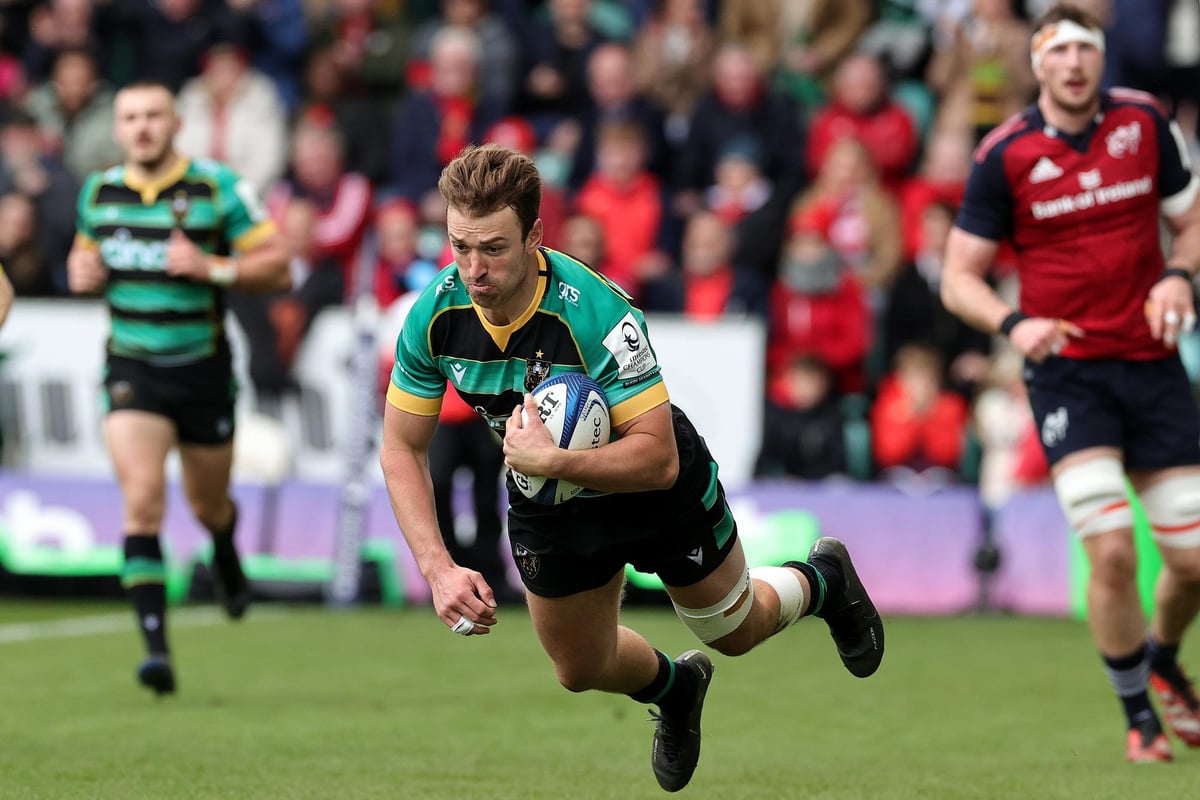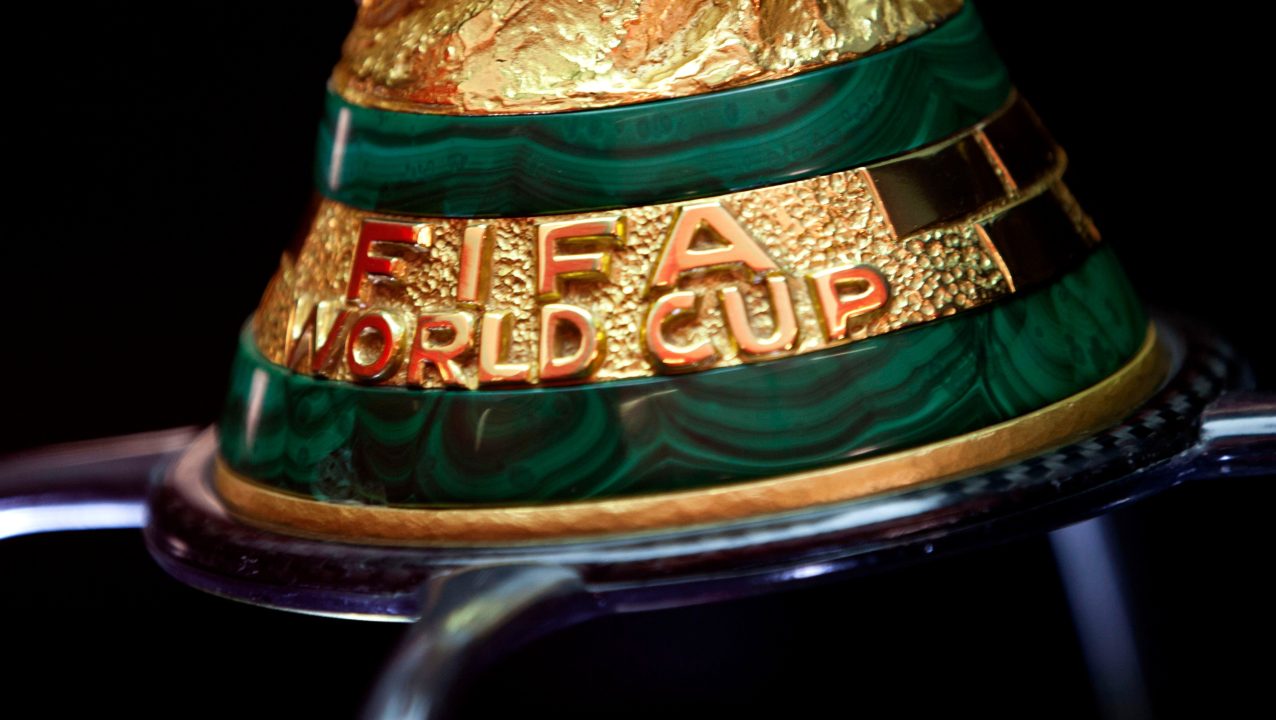
With billions accruing to the Nigeria Football Federation (NFF) from FIFA, the Confederation of African Football (CAF), and the federal government, many are alarmed that the body still experiences unending financial troubles. Curbing this will require much financial discipline and deployment of tested home-based players for national assignments, CHRISTIAN OKPARA writes. The Nigeria Football Federation (NFF) is one of the busiest organisations in the country.
Saddled with the responsibility of ensuring that Nigerian football grows in tandem with the enormous number of talented young men and women playing the game, the onus is also on the NFF to ensure that it helps the army of talented youngsters achieve their potential in the beautiful game. Consequently, the NFF, through the various national youth teams, is expected to allow these talented youngsters to hone their skills and exhibit the same to the world. The senior national teams, the Super Eagles and Super Falcons, are also an avenue for the country’s biggest talents to show their stuff to the world and, in the process, get global attention or better opportunities through new clubs to turn their talents to economic advantage.

In carrying out all these functions, the NFF is sometimes in a quandary in meeting its obligations to its partners, players, and coaches. With 11 national teams to cater to, the country’s football governing body perennially laments the dearth of resources to meet its obligations to concerned parties. Expectedly, this has, over the years, led to a situation where players and coaches are owed arrears of match appearance fees, bonuses, and salaries.
While the image of the NFF going cap-in-hand begging for resources has crystalised, some stakeholders believe that the body should never be insolvent owing to the huge amount of money that accrues to it from the world football governing body, FIFA, and the Confederation of African Football (CAF) yearly. There are also various sponsorship agreements, which are supposed to make the NFF the richest sporting organization in Nigeria. For instance, the NFF, like the other member associations, got $8 million from FIFA as part of its Forward Development Programme in 2024.
This is part of the $2.79 billion that FIFA gave to its member associations and confederations for investment in soccer development over the first two cycles of the programme. CAF, on the other hand, gave the NFF and each of the other member associations $400,000 in the 2024-25 financial cycle.
This is up from the $200,000 the body gave its members in 2022. From all these sums and its allocation from the Federal Government, the NFF budgeted N17.6 billion for its activities this year.
The NFF’s programme for this year includes the remaining qualifying matches for the 2026 World Cup, the Women’s Africa Cup of Nations, the Morocco 2025 Africa Cup of Nations, as well as, the African Nations Championship (CHAN), which will be held in December and February respectively. With all these championships, the NFF still says that it can barely sustain its operations due to the enormous resources it needs to meet its obligations. For instance, the federation spends nothing less than $1 million during each match window.
A top official of the federation told The Guardian that organising players’ and officials’ logistics for a single game cost so much that after each window, the NFF is left with many unpaid bills. Pleading anonymity, the official said: “As footballers, the players don’t fly economy. They must fly business class to stretch their legs and avoid cramps, and you know what that means.
“For the game against Rwanda, there is no direct flight from Turkey and some other European countries. So, the players had to go to where there was a direct flight to connect to Rwanda. The NFF considers all these before booking flights for the players.
Then, there are hotel bills, internal movement bills, and other expenses to take care of.” The average business class return ticket from London to Lagos costs about N7, 394, 283, 79 (£3,830) for a single player. This amounts to N17.
006 billion for all the players for a single game. The NFF also spends almost the same amount of money on the senior women’s national team, as the bulk of Super Falcons stars are based in Europe, North America, and China. Considering all these expenses, stakeholders question the rationale behind inviting 23 players from Europe for a game when the team hardly uses more than 17 during each encounter.
They specifically argue that streamlining the list of players to be invited from overseas for any game to only those who will play, or add a competitive edge to the team will help the NFF to save some money, which could be deployed for other useful purposes. While analysts blame the federation’s recourse to wholesale dependence on overseas-based players on the corruption that has continually ensured that redundant players are always called to the Eagles’ camp, the NFF’s failure to develop the local league and make it attractive to national team coaches, as well as, local coaches’ failure to develop players that are capable of standing their own against Europe-based stars. Worried by the development, a former Super Eagles goalkeeper, Segun Oguns, alleged that the NFF prefers to “waste money” on unproductive Europe-based players because it is averse to investing properly in home-based players and the national league.
“They are afraid of failure and what the people will say if they pick home-based players and the boys fail to deliver. But if you don’t give the boys a chance, how will they learn?” Oguns, who said that the federation wants to be measured by the national team’s performance, asked: “What happens to the league? What is their responsibility? Their basic responsibility is to ensure that the Nigerian league is growing, but the body is not doing anything about it. “When the league is not growing, how do you get players for the national team? And that’s why they keep inviting average players from Europe to come and play for Nigeria.
” The retired goaltender advised the NFF to look for ways to remodel the national league and ensure that players from the competition are good enough to play for the Super Eagles. That way, he said, the federation will not spend so much on ferrying players worldwide to play for Nigeria. He also advised the NFF to classify the national team matches and allow the home-based players to play in games involving the smaller countries, whose football is not well developed.
Oguns said: “Inviting 23 professionals for a match against Ethiopia, Togo and Benin Republic is a waste of resources. I coached in the Benin Republic for many years. That team that defeated Nigeria in Abidjan featured seven players who played under me.
If Benin can play home-based players and defeat us, then something is wrong with our development.” A former BCC Lions FC of Gboko captain, Bolaji Douglas, says the invitation of 23 overseas-based players by Super Eagles’ coaches is a continuation of the age-long practice of using the national team to rehabilitate players. He said the inclusion of some of these players blocks opportunities for younger, in-form talents.
Looking at the players in NFF’s provisional list for the games against Rwanda and Zimbabwe, Douglas said the inclusion of Ahmed Musa and Kelechi Iheanacho is typical of the country’s penchant to waste money on players, who will not add value to the squad. Since it is generally believed that Ahmed Musa, who currently plays for Kano Pillars, is using the club side to keep fit while waiting for another opportunity to return abroad, Douglas said: “The national team should never become a rehabilitation centre or a place to come and wind down from the hectic demands on the players, by their clubs.” A former Stationery Stores, Bendel Insurance, and Julius Berger star, Loveday Omoruyi, also noted that the inclusion of some players, “who will not add any value” to the team is not actually the handiwork of the coaches.
He said some football agents, through some members of the NFF board, foist some players on the coaches to raise their market value. “Who is in charge of the team selection? Is it the coaches or some people in the NFF? If the coaches have the sole responsibility of inviting players, they will allow some home-based players to play. These home-based players want to attract foreign scouts and, therefore, will give their all to the national team.
“Bringing in 23 overseas-based players could be counterproductive. Apart from the money spent on ferrying these players into the country, some of them find it difficult to adapt to the continent’s weather and conditions. “African football is on different terrains.
These players are not used to somebody throwing ice cream or pure water at them on the field. So, when they get here, they see all those things, and psychologically, even before a game, they are out. “So, it is time we allowed three or four home-based players to play, and they will make a difference in that team.
Stephen Keshi did it in 2013 and won the African Cup of Nations. The hero of that team, Sunday Mba, was a home-based player.” While some stakeholders see the wholesale invitation of overseas-based players as a waste of scarce resources, former Super Eagles Media Officer, Toyin Ibitoye, said some of the coaches do it because they want the results Nigerian desire.
According to Ibitoye, knowing how Nigerians treat coaches who fail to deliver, no coach will invite players who will not give him the desired result. “There should be a balance. We have to balance expectations .
..The NFF is pressured to get the results, but they are also looking at their purse.
You and I know that the average fan does not like excuses. If the NFF had invested in local players and exposed them to international football in friendly games over time, it would have been easy to trust these players in high-profile games. But then, in the high-profile games, where the expectation and the stake are so high, like the World Cup qualifier, or the AFCON qualifier, it is a bit risky to go in with players who will not be able to deliver, not because they are not good, but because they lack the exposure to withstand the pressure of playing at that level.
“It takes time to build them up to that level and the problem with Nigerians is that we are not patient enough for that process to be completed, so we always rely on these foreign players.” Ibitoye suggested that the NFF should make the national team very competitive so that only the best players are invited to fight for shirts. “Stephen Keshi, Sunday Olise and Samson Siasia all tried getting a few local players into the team.
Even if they don’t make the squad finally, let them be there, feel the national camp setup, gain valuable experience, and understand the demands of the game at that level. But the problem is, where is the balance? Do you want a national team that cannot get the result when you are saving cost or you rather invest in getting the result and know that it results at that level that guarantees sponsors and investors patronage?” Using the ongoing World Cup qualifiers, to buttress his point, Ibitoye said that the Federal Government is investing heavily in it because it understands what it means to be at the World Cup. Will the NFF be bold enough to say ‘Ok, we want to use home-based players to prosecute the games? They understand that if it doesn’t go their way, the hammer can fall and everybody will go home.
So, that is where the balance is difficult to achieve; that is why the NFF will continue insisting on overseas-based players rather than using home-based stars. “But you and I know that there is nothing better than investing in local league players and being able to create a level playing ground for both the home-based players and the foreign-based stars. Right now, as we are in Nigeria, everything is tilted towards the foreign-based players.
” A former Eagle Cement FC, Niger Tornadoes, and Bendel Insurance star, Onome Obruthe, wants the coaches to pick the players they want so long as they deliver the goods. “If the coaches want to invite all the 23 players from Europe, it is fine by me, but the only reason I will align with that is that when a local player scores more than eight goals in a season here, he starts looking for ways to move abroad. Sometimes they go to Vietnam, Iran, Cambodia, and other such places.
Now, what is reigning is Ethiopia and I think that until local players begin to gain relevance like they did in the past, it will be difficult for any coach or the NFF to trust them with the national team shirts. “Enyimba won the CAF Champions League back to back in 2003 and 2004, they had Vincent Enyeama, Obinna Nwaneri, and some others in the national team. But we don’t have such teams anymore.
There was a competition in Mexico a few years ago where Super Eagles’ former coach, Jose Peseiro, took home-based players and they lost 6-0.” He said that people who point at the Algiers 1990 and the USA ’94 teams to buttress their stance on the issue miss the point because those teams were made up of highly technical and tested players, adding that the Nigerian league no longer produces the calibre of players that are capable of standing on the same pedestal as players that are coming from Europe. “I will align with the invitation of foreign players for the national team for now because we don’t have the local players to step up to the big stage.
” Obruthe said the forthcoming African Nations Championship (CHAN), which is a competition for home-based players, is the right opportunity for Nigerians to gauge the standard of NPFL players. “If they do well in CHAN, we can then point at some of them to be given an opportunity in the main Super Eagles. Right now, we cannot pair the home-based players with the players from abroad and select the local boys.
”.















